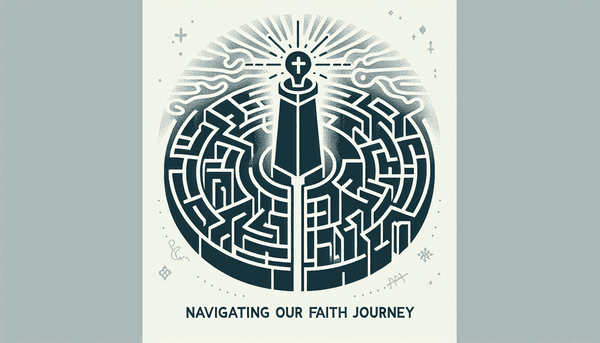Identity in Christ: A New Creation
Being 'in Christ' means more than a change of status; it's a complete transformation into a new creation. The Scriptures affirm, 'Therefore, if anyone is in Christ, he is a new creation; old things have passed away; behold, all things have become new' (2 Corinthians 5:17). This identity redefines our existence, setting us on a path where our past is forgiven and a new life has begun. As members of the Body of Christ, we are called to live out this new identity in unity and diversity, serving together in harmony and encouraging one another in faith as affirmed in Ephesians 1:7 and John 1:12.
Responding to Correction with a Biblical Mindset
Receiving correction can be a challenging experience, yet Scripture teaches us to embrace it as a path to growth and understanding. The book of Proverbs reminds us that 'Whoever loves instruction loves knowledge, but he who hates correction is stupid' (Proverbs 12:1). In this spirit, we are called to respond to correction with humility, seeking wisdom and making changes that reflect a heart aligned with God's will. As we encounter correction, may we listen swiftly, speak slowly, and remain open to reproof, for 'He who disdains instruction despises his own soul, but he who heeds rebuke gets understanding' (Proverbs 15:32). Learn more about living a life that reflects the teachings of Jesus and finding strength in scripture.
Cultivating Diligence in Bible Reading
Developing a disciplined approach to reading the Bible is essential for spiritual growth. By setting specific times for reading, as Daniel did with his prayers (Daniel 6:10), and establishing a structured plan, we prioritize our engagement with Scripture. Before reading, we can echo the Psalmist's prayer for insight: 'Open my eyes, that I may see wondrous things from Your law' (Psalm 119:18). As we read, it's crucial to meditate on the Word, pondering its meaning for our lives, and applying its truths, being 'doers of the word, not hearers only' (James 1:22). With friends or study groups, we can stay accountable, encouraging one another towards love and good deeds (Hebrews 10:24-25).
Experiencing 'God with Us' in Our Daily Lives
The assurance of God's presence in our lives brings comfort and strength. The concept of Emmanuel, 'God with us,' is central to our faith, as seen in Matthew's Gospel (Matthew 1:23). This divine companionship offers peace and guidance, reminding us of God's steadfast love and faithfulness. By practicing gratitude, engaging in acts of service, and fostering a heart that seeks and responds to God, we cultivate an awareness of His involvement in our daily circumstances, embracing the joy and redemption He offers.
Conclusion
The Bible's teachings offer a wealth of knowledge and guidance to navigate the spiritual and practical aspects of our lives. From the hope instilled by the doctrine of the rapture to the transformative identity found in Christ, these scriptural insights shape our journey of faith. As we respond to correction with humility, cultivate diligence in Bible reading, and experience the comforting reality of 'God with us,' we are drawn closer to the heart of God. May we continue to seek His presence, live out His Word, and grow in grace each day, assured of His unwavering love and support.
FAQ
Q: What does the Bible teach about the rapture?
A: The Bible teaches that the rapture is an event where believers in Christ will be taken to heaven to meet the Lord. This event is described in 1 Thessalonians 4:16-17, where the dead in Christ rise first, and then the living believers are caught up with them to meet the Lord in the air.
Q: What does the Bible say about our identity in Christ?
A: The Bible says that in Christ, we become a new creation, with our old lives passed away and a new life begun. This transformation is detailed in 2 Corinthians 5:17 and speaks to our redeemed identity in Christ.
Q: How should I respond when I receive correction?
A: The Bible encourages us to embrace correction as a means to grow and gain wisdom. It teaches us to listen, accept reproof, and make changes in our lives according to Proverbs 12:1 and Proverbs 15:32.
Q: How can I be more diligent in my Bible reading?
A: To be more diligent, set a specific time for reading, create a reading plan, pray for understanding, eliminate distractions, meditate on the Word, apply what you learn, stay accountable, and persevere in your routine as suggested by various passages including Proverbs 21:5, Psalm 119:18, and James 1:22.






